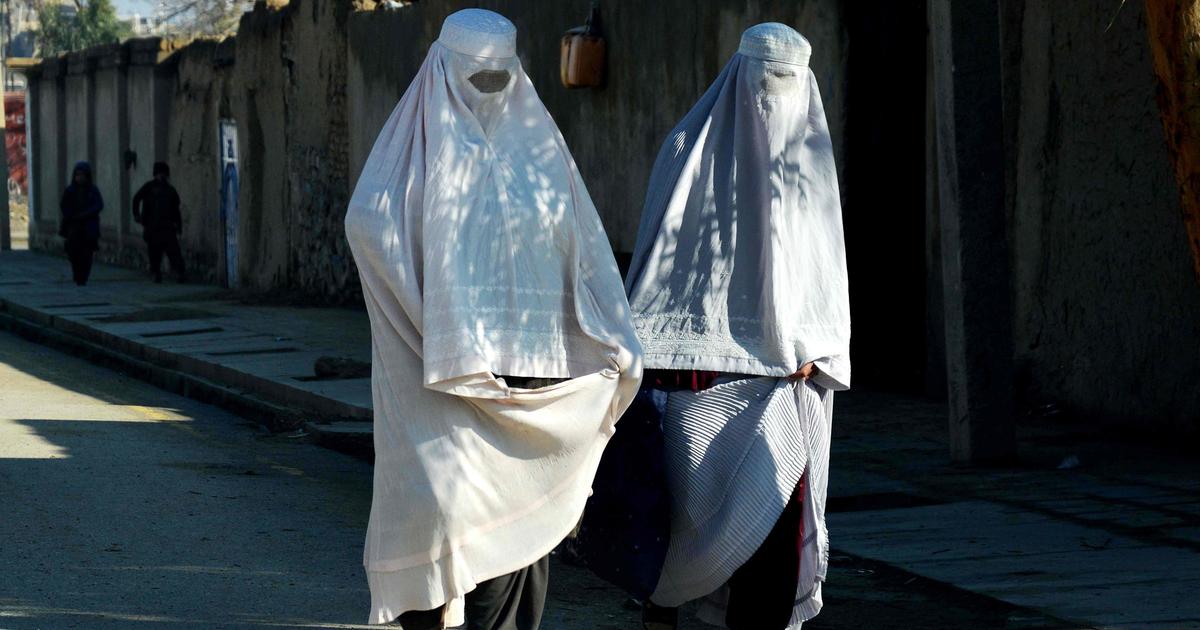Global society
all articles
Dusty is Kabul at the foot of the mountains. Thick smog hangs over the capital of Afghanistan. Nervous is the city, anxious. The attacks are increasing, for months, years. Special forces of the government are engaged day and night in commando operations against extremists, even more so since the peace negotiations between the Americans and the Taliban seem to have failed for the time being.
They respond by force: there were attacks in Kabul last Tuesday alone. The one near the US embassy, the second north of the city during a campaign campaign by President Ghani, at least 26 people died. On Thursday, a Taliban car bomb killed 20 people.
Until recently, a peace agreement was still within reach: for about a year, the US negotiated with the Taliban. It was about the withdrawal of the Americans - in return, the Taliban should ensure that Afghanistan is never again a retreat for foreign terrorists. But in early September, Donald Trump broke off negotiations over a plot in which a US soldier died. How it goes on is now open.
But the basic problem remains: neither the government nor the Afghans were even involved in these talks. The US negotiated with the Taliban because they have become so powerful again and control large parts of the country:
Already from 1996 to 2001, the extremists ruled the country. It was a time that many Afghans think back with horror. In which women had almost no rights in which dissenters were brutally suppressed. Many Afghans who have been struggling to gain small freedoms piecemeally over the past 18 years are afraid of losing them again if the US and the Taliban reach an agreement. Women's rights activists, intellectuals, religious minorities: they all warn against a return to the past - and are afraid of a false peace.
The musician
Also Ahmad Sarmast, who died in December 2014 almost by a Taliban attack. He corrupted the Afghan youth, said the group after the attack announced. Since founding the Afghanistan National Institute of Music in Kabul in 2010, the Taliban have seen him as their enemy. Because art, especially music, they reject strictly.
Sarmast walks through his music school in Kabul on a Saturday morning, near Highway One, the grand ring road that runs all over Afghanistan. The helicopters are roaring over the city, car lines form at checkpoints. Sarmast sits in his office among the photos of the great concerts that his orchestra of young Afghans and Afghans around the world has given. It was always very important to him that girls study at his school.
His family begged him to leave the country. But he does not want to leave, does not want to leave the country to the extremists, does not want to see the art die again, although he is threatened again and again:
Afghanistan has evolved over the past 18 years, says Sarmast. The population, especially the youth of Afghanistan, is much more receptive to change today than it is in 1996, he explains as he walks through the school. Past rooms full of instruments.
»Today Afghanistan has a constitution. In 1996, Afghanistan was a battlefield of various military factions. But today we have a strong central government. This clearly shows how Afghanistan has changed. «
But the government is not as strong as Sarmast hopes. The war in Afghanistan has been as bloody in the past few years as it has not been in a long time. The Taliban are on the rise, only 54 percent of the country's districts, according to the US Sigar Report earlier this year, are controlling the government. The Taliban have more territorial influence than at any other time since 2001. The big cities are repeatedly targets of brutal attacks. Between 2015 and 2018, around 28,000 Afghan soldiers and police officers died, according to the Afghan government.
A Hazara fighter guards a Shiite mosque
Street scene in Kabul
Afghan mountain range from the air
Shortly after breaking off talks with the Americans, the Taliban sent a delegation to Russia. After the meeting, the Russian side said it was necessary to resume talks between the US and the Taliban. The Taliban are ready for it.
The government in Kabul, on the other hand, said that peace could only be achieved after the election on September 28th. But the Taliban still refuse to negotiate directly with the government. They regard them as illegitimate.
The shiit
In a Shiite mosque on the outskirts of Kabul, the jurist Dr. Zakir Husayn Ershad. He is Hazara, a member of the Shiite minority of Afghanistan. He does not believe in peace, believes that it will always go on with the violence that has long been the target of Hazara. Thousands were slaughtered by the Taliban during their reign.
Behind the gates of the mosque are Hazara with assault rifles. Ershad sits down in front of the pulpit. Outside, dark clouds are moving across the sky.
The concern that not all Taliban will stick to the possible peace anyway is justified. Already today there are different Taliban groups. The extremists are drifting apart - and it is unlikely that all the groups would lay down their arms. Many commanders have their own economic interests. And they are above the desire for peace.
The women's rights activist
Women are particularly worried about the country. Samina Ansari, women's rights activist and former lecturer in gender sciences at the American University in Kabul, sits in the garden of a friend, a young woman, cosmopolitan and eloquent. A career like hers - unthinkable among the Taliban.
Although President Ghani wants to defend the rights of women. Already in November 2018 he presented a peace plan in Geneva in which he made several conditions. The Taliban must become part of a democratic society, they must accept the constitution and especially the rights of women.
But the Taliban negotiated with the US, with Pakistan, Saudi Arabia, the Emirates, the Russians - just not with the Afghan government. And certainly not with women:
Other women's rights activists living in more conservative regions are becoming even more vocal than Ansari: in Kandahar, in the south of the country, one activist says that all women's rights could now be sacrificed for peace. In the north, in Faryab province, another says that it is their greatest fear that girls' schools are disappearing, that there could be no development, no female participation. That women could again become lawless weaning machines.
What happens now? If Donald Trump resumes talks with the Taliban and really signs an agreement, it would be good for the US and good for the Taliban - but bad for Afghanistan, the women, the Hazara and the intellectuals in the country fear.
Then another round in the cycle of war and chaos threatens, which lasts for decades.
Author Fritz Schaap
Videos & Photos Christian Werner
Graphic Anna-Lena Kornfeld
Layout Lorenz Kiefer
Programming Chris Kurt
Video production Pune Djalilehvand
Final editor Katrin Zabel
Documentation Rainer Szimm
Editors Lena Greiner, Jens Radü, Mathieu von Rohr
THE MIRROR 39/2019
This article is part of the project Global Society, for which our reporters report from four continents. The project is long-term and supported by the Bill & Melinda Gates Foundation.
What is the project Global Society?
Under the title Global Society, reporters from Asia, Africa, Latin America and Europe will be reporting on injustices in a globalized world, socio-political challenges and sustainable development. The reportages, analyzes, photo galleries, videos and podcasts appear in the Politics Department of SPIEGEL. The project is long-term and will be supported over three years by the Bill & Melinda Gates Foundation (BMGF).
Are the journalistic contents independent of the foundation?
Yes. The editorial content is created without the influence of the Gates Foundation.
Do other media have similar projects?
Yes. Major European media such as "The Guardian" and "El País" have created similar sections on their news pages with "Global Development" or "Planeta Futuro" with the support of the Gates Foundation.
Was there already similar projects at SPIEGEL ONLINE?
SPIEGEL ONLINE has already implemented two projects in recent years with the European Journalism Center (EJC) and the support of the Bill & Melinda Gates Foundation: The "Expedition The Day After tomorrow" on Global Sustainability Goals and the journalistic refugee project "The New Arrivals" Several award-winning multimedia reports on the topics of migration and escape have emerged.
Where can I find all the publications on the Global Society?
The pieces can be found at SPIEGEL ONLINE on the topic page Global Society.






